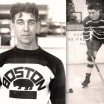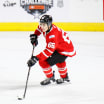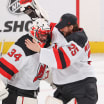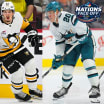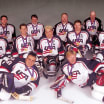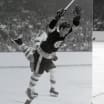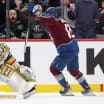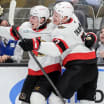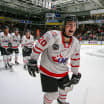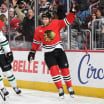NHL.com's Q&A feature called "Five Questions With …" runs every Tuesday. We talk to key figures in the game and ask them questions to gain insight into their lives, careers and the latest news.
The latest edition features Minnesota Wild owner Craig Leipold:
Five Questions with Craig Leipold
Wild owner offers advice on growing NHL team in Las Vegas
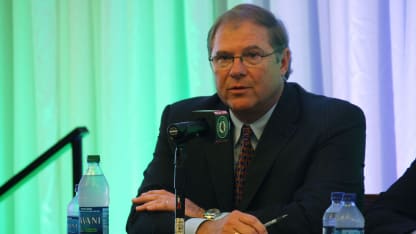
© Dave Sandford/Getty Images
PALM BEACH, Fla. --Nearly 20 years after he bought the expansion franchise and brought the NHL to Nashville, current Minnesota Wild owner Craig Leipold is watching with anticipation to see what Vegas Golden Knights owner Bill Foley can do with the NHL in Las Vegas.
The similarities between the Nashville and Las Vegas markets aren't lost on Leipold.
They're non-traditional in the hockey sense. There was some pro hockey played in the markets before the NHL got there, including teams from the ECHL (Nashville Knights, Las Vegas Wranglers), but nothing that would or could create a culture of hockey in each community.
Like the Nashville Predators were in 1997, the Golden Knights will be the first professional team in their market, with the potential for the National Football League to eventually follow the NHL into Las Vegas the way it did with the Tennessee Titans' move to Nashville in 1998.
Nashville is flooded with nightlife and entertainment, and is considered the country music capital of the world. The nightlife and entertainment options in Las Vegas rival anywhere in the world.
But the NHL is big business and it takes time to create a hockey culture in a market. Nashville is a testament to that. It started small and went through some hardships, but now it is thriving as a stable and growing hockey market with Bridgestone Arena as the centerpiece.
Foley's plan is to turn Las Vegas into what Nashville has become. Leipold, who sold the Predators in 2007 and bought the Wild in 2008, can give him advice on how to do it. That's exactly what the he did in an interview with NHL.com between meetings with the Board of Governors last week:
Here are Five Questions with Craig Leipold:
What advice can you offer Bill Foley as he embarks on building an NHL franchise in Las Vegas?
"First of all it's a different business model. He's coming from a number of businesses that he's been involved in, but this is a different type of business. Just from your mindset, from how you run a business, there are certain things that are consistent with the way you run all businesses and those are HR [human resources] and the importance of compensation, things like that. But the business of a sports franchise is a different way to run a business. It's so important to be out in the public. It's so important to be part of the community. Your assets are all these players and you want to make sure, particularly in a new market, that they're respectful of the community and they're involved in the community.
"One of the things Bill did very early on, which I would have suggested, was move to Las Vegas to be part of the community. He's clearly part of the community both with a home there, and I know he and his wife are on board. You can't replace that kind of touch that he needs to have in the market. Really important. That's a different mindset from a normal business. [Note: Leipold said he did not move to Nashville on a full-time basis, but in hindsight he said he should have.]
"Every night, after every game you have, the next morning you're going to read the newspaper and it's going to tell you exactly how you're doing. That's another thing, you're not used to being criticized every single day [in other businesses]. Just don't read it. Don't read the blogs. Sure, you've got to read the newspapers, but stay away from all the message boards. There is nothing good that you're going to learn about your team or how it should be managed."
What about communication, calling other owners? Do you view that as being essential to become part of the community?
"That's the other thing that I think is important. Pick up the phone and call the other owners and talk to them about what they do. Ask them questions about how they pay their employees, their chief marketing officer. How big is their sales department? This is a new business for him, and early on I didn't do that as often as I should have. I found myself calling [former Wild owner] Bob Naegele from Minnesota since he was in the same position I was in."
But Foley doesn't have anybody else coming in as an expansion franchise owner where the NHL had Nashville, Atlanta, Columbus and Minnesota all join in a three-year period. Should that matter?
"Right. [Naegele and I] could talk to each other, but the ones that we should have been talking to are the guys who have been in the League for 10 years. We compete with each other on the ice, but off the ice, if he calls me and just has questions of the business side, about how I set my budget and when I do my budget, those kinds of questions, we're very open about. [Foley] has a very unique market. You could argue probably everybody has one, but he has one of the most unique markets and it's a non-traditional hockey market, so I would try to develop relationships with owners in those markets."
OK, so Foley is just starting. If you look at Nashville now, it's thriving. He's going to want to get Vegas from here to there. He can't do it quickly. It takes time. What's the next step?
"There are a couple ways. First of all, winning brings people in and gets them engaged. And the expansion draft is much friendlier now than it was back then, and that's going to help him. The other thing is in Nashville, as an example, we really engaged the country music industry. All the country music artists were very happy to do stuff for us. Vince Gill, Amy Grant, Brooks & Dunn, Martina McBride and on and on and on. Las Vegas is known for gambling and I don't know how much you want to engage that, but it is known for big shows, for entertainment. Get those guys to be part of it; to be your ambassadors, if you will. That's exactly what we were able to get in Nashville. They were fantastic. The market knows them. There are iconic people in Las Vegas. Maybe they can do billboards with a hockey theme like we did back in Nashville. There was the 'Got Milk' campaign if you remember, and we had the blackout teeth with Martina McBride on it going, 'Got Tickets.' All the great country music stars were more than willing to help us."
Did you have a relationship with any of the owners when you broke in? If not, do you feel it's more inclusive now than it was then?
"I don't recall having much of a relationship. I think it was a little harder to get in. I think it is [more inclusive]. The owners are younger, more involved in their franchises. There are a dozen guys at least that I can call up, and do, and we don't talk about our teams and what we pay the players, but the other 250 people that do work for us. What is your pay? What is your job description look like for this? In our business it takes more money to keep some of these higher managers because they're wanted out there. A chief marketing officer can have a huge impact on our business and you want to make sure you're not overpaying them and you want to make sure you're not underpaying them. You want to make sure you're treating them fairly. I didn't call as many people at the start. I didn't know them that well. Bill will probably feel the same way, but I think he'd be so surprised at calling big business people up who own franchises. I remember calling [former Dallas Stars owner] Tom Hicks when Tom Hicks was in his heyday, to ask him about a concessionaire we were looking at. I got, 'I'm sorry, he's in a meeting, let me check.' Well, he got on the phone and was like, 'Craig, how are you doing?' It was a wow moment. We are a member of a club. The franchises that are doing well benefit every franchise. For the two or three that may not be as successful they bring down the value, and they bring down the ambience and the size of our business. Everybody talks about the two or three that don't work; they're not talking about the other ones that are. It helps the entire League when we're all healthy.
"One other thing we did was a Hockey 101 University. So the first half of the first year we would have 100 season-ticket holders come in and it was Terry Crisp, a great personality, to help explain the game in very simple terms. It was called Hockey University 101. You have to get some guy who is a lot of fun, and you can find that down there [in Las Vegas]."
